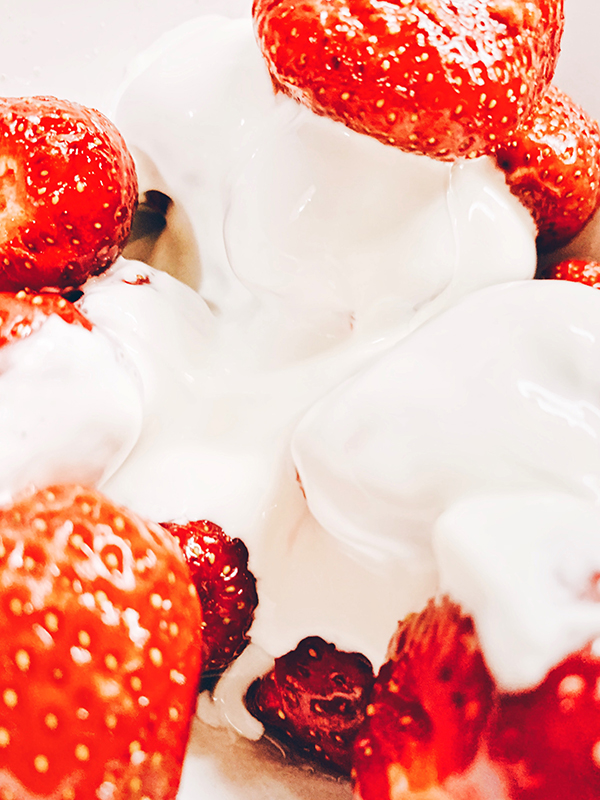
You may think you have the best dog, but you’d be wrong. Klaus Von Heim, the feisty wiener dog we had when I was growing up, was the best tail-wagger ever. We acquired him from a family who had a growing pack of pooches and was willing to re-home one. Klaus, being the smallest of the lot, had learned to hold his own in all circumstances. He was a scrappy little rascal.
You could almost imagine him standing on a street corner cracking his knuckles and sporting a pork pie hat set at a jaunty angle. Had he been able to wear a coat, he might have surreptitiously stuffed a few milk bones in the inside pockets, ready to sell them to passing strangers at a “special price”.
All of us adored Klaus. Not for an instant did he lack for attention, affection and a decent meal. He was never convinced he’d been fed enough, though, and was forever looking for the next morsel, even immediately after polishing off a full bowl. I suspect years of fighting for his share of kibble while running with the gang had resulted in his need to grab food whenever he could. No doubt a dachshund’s well-known tendency towards an insatiable appetite contributed to his profound gluttony.
Klaus was very loving, and generally quite well behaved; but as previously noted, food was his downfall (much like me, actually!). He would often steal food when no one was watching. Here’s the thing, though. He was wily enough to not take ALL the food. So we’d frequently be left frowning and scratching our chins, murmuring, “I thought there were four meatballs on that plate; how come now I only see two?” For the longest time we suspected him of thievery, but we could never quite catch him in the act.
Until the night of the strawberry shortcake.
It happened like this:

My father often entertained foreign guests at our house for dinner. We would eat in our little dining area next to the kitchen, and afterwards move to the living room for coffee and conversation. On one such night, we ended a lovely meal with Mom’s sublime strawberry shortcake. The delectable dessert was always served piled high with clouds of fluffy, vanilla whipped cream. Mmmmmmm! Klaus, as always, gave an Oscar-worthy performance of a starving waif throughout the dinner, to no avail. Over the years we had become quite immune to his theatrics.
Once we bipeds had retired to the living room and filled it with laughter and stories, I was sent back to the kitchen to refill the coffee pot. There was Klaus, tucked in a corner, the very picture of innocence. Only, unbeknownst to him, he had whipped cream slathered all the way up and down his chin!! Clearly, he had jumped up on the table and availed himself of leftover shortcake while we were in the other room.
“KLAAAUUUSS!” I scolded in my meanest voice. He looked up inquiringly, still convinced he could pull off his angelic act. I bent down and scooped up the whipped cream under his chin and showed it to him. Like a champion thespian, he immediately switched to groveling with the “I’m sooooo soooo sooorrrry, but I’m weak, sooooooo weak” act. LOL. Cute nearly always works and he pretty much got away with just a tongue lashing that night.
So often we are like Klaus, convinced we can hide our little sins so no one will find out, not even God. Or perhaps we think he’ll cut us a break just because he loves us and we are irresistibly cute. Maybe, like Klaus, we’ve convinced ourselves how unfair it is for us to be deprived of the delicious tidbits of life. After all, we deserve our little indulgences just like everybody else, don’t we?
But sin doesn’t work like that. It’s not like strawberry shortcake which you can clean off with a wet rag. Sin by nature is corrosive. Little sins lead to bigger sins, and then even bigger sins. If unchecked, sin will corrupt our own souls as well as the souls of those around us. God loves us too much to leave us wallowing in sin’s filth.
What is your attitude towards sin? Has it been shaped by your upbringing and/or your concept of God? What do you think about being the perpetrator of sin? How do you feel when victimized by someone else’s sin?
One striking thing I have noticed in my more than half century on the planet is how much the perception of sin has changed in popular culture over time, and how different the accepted idea of what qualifies as sin can vary from country to country. Unlike the world’s sensibilities, God’s definition of sin is unchanging, unyielding, unapologetic. In Biblical terms, sin is the failure to meet God’s standard.
Sadly, sin shows up early in the story of mankind. Three chapters into Genesis, actually. At the core of every sin is selfishness, which is a form of pride. Basically it says, “My needs and desires are the only ones that matter, and everyone and everything else exists to be used for my satisfaction.” I cannot think of a single sin that does not have selfishness at its root; and try as we might, we can never be completely rid of it.
What are some other attributes of sin? First of all, sin is sneaky. In Genesis 4:7 God describes sin as crouching by the door, desiring to have us, and that we must master it. It is powerful, and destructive like a roaring lion, ready to rip our jugular open at the first opportunity (1 Peter 5:8). Sin taken to its logical conclusion results in death, and that death can occur in multiple realms—in our mind, heart, spirit, emotions, relationships, and eventually, our physical body (James 1:15).

Oh, then! What to do? Our attitude towards sin should never be one of complacency. As a preventative measure, we keep God’s word in the center of our world.
Psalm 11:9-11 How can a young person stay on the path of purity? By living according to your word. I seek you with all my heart; do not let me stray from your commands. I have hidden your word in my heart that I might not sin against you.
As an antidote for sin, the Bible prescribes confession followed by repentance. These two things require us to purge ourselves of the selfishness and pride that generate sin. In confession we recognize our actions are unacceptable, and in repentance we relinquish our desires and replace them with God’s will, which is always best for all involved.
The Bible tells us that sin can be forgiven (1 John 1:9):
If we confess our sins, he is faithful and just and will forgive us our sins and purify us from all unrighteousness.
Sin can be cleansed, and God longs for us to ask for his forgiveness (Isaiah 1:18):
“Come now, let us settle the matter,”
says the Lord.
“Though your sins are like scarlet,
they shall be as white as snow;
though they are red as crimson,
they shall be like wool.
And finally, Jesus can free us from sin (John 8:36). The sins that we have confessed and repented of should be left in the past. Lingering guilt and pain can be used to drive us away from God otherwise.
So if the Son sets you free, you will be free indeed.
In this land of the free, then, we must work each moment to be free from the web of sin. Then goodness and mercy will follow us all the days of our lives.
Nina Kylstra. Member of the LifeWay body of Christ for 22 years. Wife of the lovable Eric Kylstra for 30 years. Life-long follower of Christ.